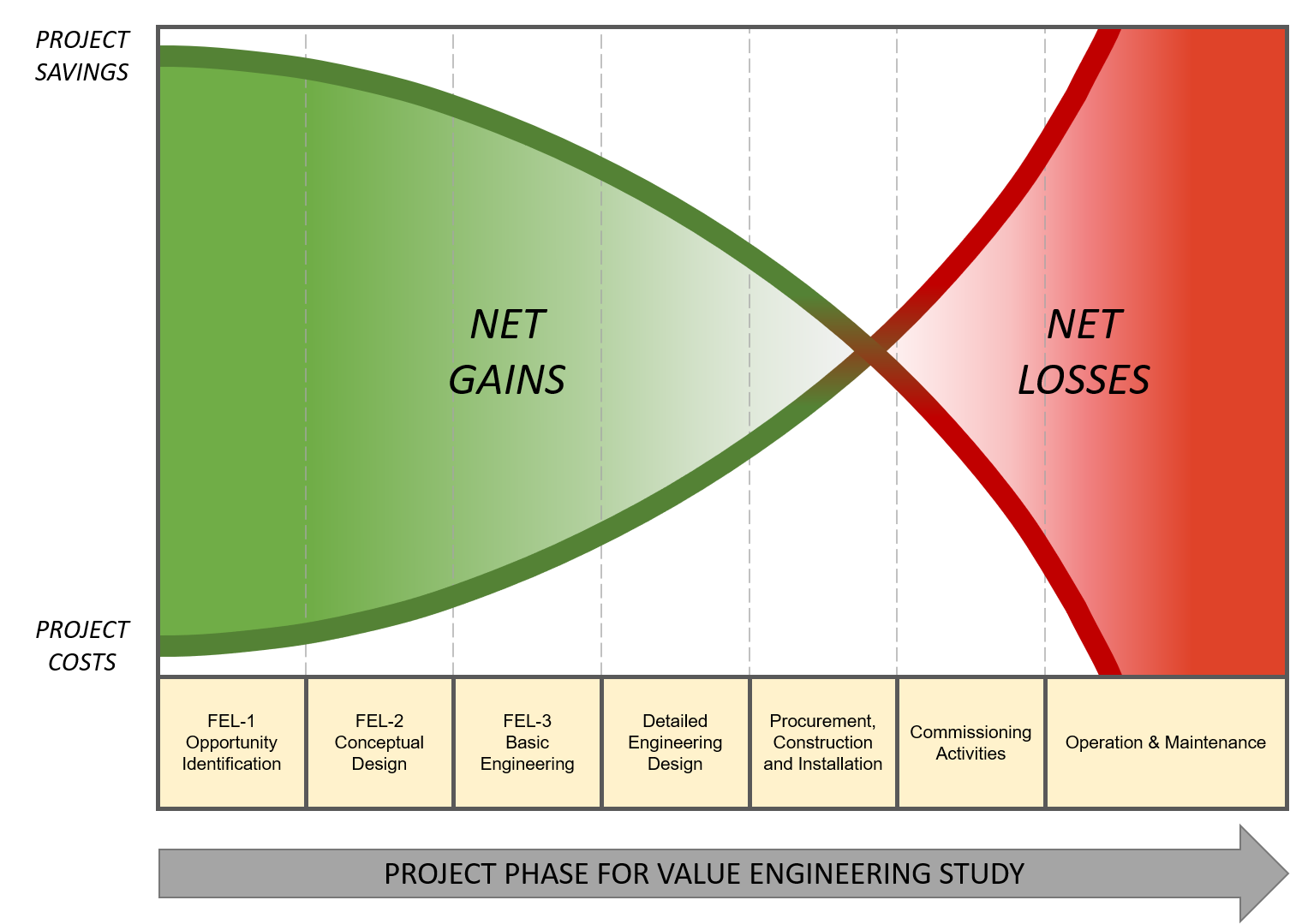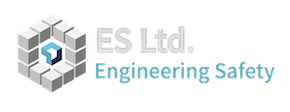Value Improvement Practices (VIP)
Value Improvement Practices or otherwise commonly known as Value Engineering, is a workshop that systematically analyses components, sub-divisions or methods within a project scope, and eliminates any unnecessary costs that does not add to its required function. This usually means saving money, however it can also mean saving time, reducing maintenance, increasing profit margins, etc.
The approach centres on the following questions:
- What is the required function or task for this component, sub-division or method?
- Are there any other alternative methods or materials, which can perform the required task equally well?
These questions instigate brainstorming to identify and provide suitable alternatives that may deliver the required function at a lower cost, whilst meeting quality, performance and reliability specifications.

VIP Process
VIP or Value Engineering, can be applied at any point during the project; even towards the final stages during construction activities. However, the latter is best avoided since any changes at this stage of the project may have a profound impact on savings and may lead to significant delays. Instead, the earlier VIP is applied, the greater the return on costs, time and efforts invested will be.
Conducting a successful VIP study begins with building and following a detailed plan. The ES developed six step “I” plan, encompasses the expected requirements of a VIP study, from information to implementation:
- Information – gathering and presenting all the data
- Innovation – brainstorming alternatives against the design in question
- Interpretation – ranking the alternatives into the most desirable
- Improvement – developing the alternatives into working solutions
- Introduction – presenting the alternatives for formal review and approval
- Implementation – applying the approved alternatives into the design
FAQ
Depending on the project stage and implementation of a VIP study, the required documentation will vary. However, the following information would be typically required in order to conduct the workshop:
– Basis of Design / conceptual design
– Full system, sub-system and component drawings
– Full and broken down details of project and life cycle costs
– List of materials, substances, equipment, data sheets, etc.
– Pertinent risk assessment studies (HAZID, HAZOP, etc)
– Functional and technical drawings
Based on the project requirements, additional information may be required, which will be highlighted within the Terms of Reference (ToR).
The VIP project team should be comprised of members with sufficient capability to contribute with key information on technical choices, which will bear a significant impact on the functionality of the design. As a minimum, the following personnel would be required in order to conduct the workshop:
– Project and technical lead disciplines (civil, electrical, process, etc.)
– Operations and maintenance representatives
– Health and safety representatives
– Finance representatives
Based on the project requirements, additional personnel may be required to attend the workshop, which will be highlighted within the ToR.
On award of the study ES will issue a project ToR or VIP plan, which will highlight the assumptions that shall be made in the study, along with data sources that will be utilised as well as any further information required from the client.
Upon acceptance of the ToR, ES will facilitate the VIP study through a workshop providing the facilitator and scribe. Once the workshop has been conducted, ES will prepare a VIP report describing the design under review, the scope, a detailed methodology, the VIP worksheets, a summary of the VIP conclusions and the recommendations based on the discussions during the workshop.
ES are globally renowned facilitators of VIP studies having conducted many hours of VIP studies, with a team of TUV Rheinland certified Functional Safety Engineers available for facilitation. For more information, or to discuss your needs for conducting a VIP study, please contact us using the form below or email [email protected]


